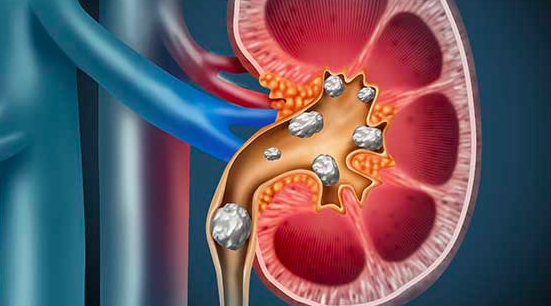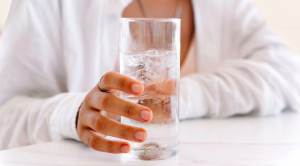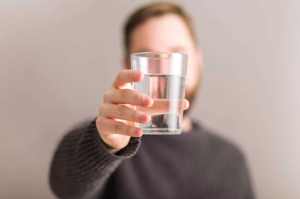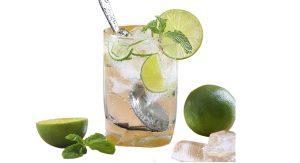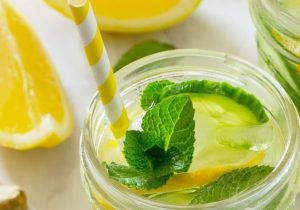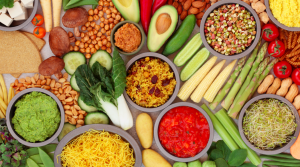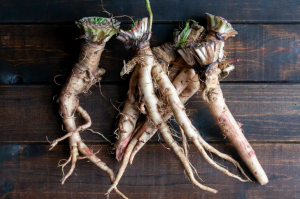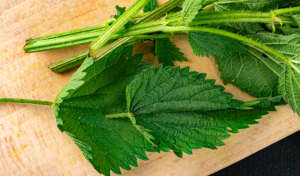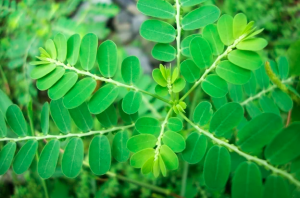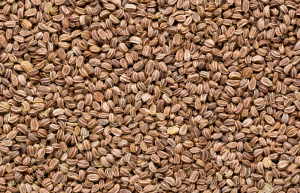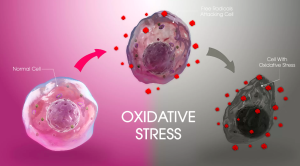Remove kidney stones naturally.
Some natural approaches may help prevent or pass kidney stones. Keep in mind that the effectiveness of these methods varies from person to person, and they should not replace medical advice or treatment. If you suspect you have kidney stones, it’s crucial to seek professional guidance.
Stay Hydrated:
Staying hydrated is indeed a key aspect of managing kidney stones naturally. When you drink an ample amount of water, you help dilute the substances in the urine that can lead to the formation of kidney stones. Adequate hydration can also help prevent the formation of new stones and may assist in passing smaller stones more easily.
Tips:
Here are some additional tips on staying hydrated to help manage kidney stones naturally:
Drink Plenty of Water:
Aim to drink at least 8-10 glasses of water per day, or more if you’re physically active or living in a hot climate.
What happens to the body if urination is retained for a long time?
Monitor Urine Color:
Your urine should be light yellow or almost clear. Dark yellow urine may indicate dehydration, so it’s essential to drink more water.
Keep Water Handy:
Carry a water bottle with you throughout the day to remind yourself to drink regularly.
Incorporate Water-Rich Foods:
Eating fruits and vegetables with high water content, such as watermelon, cucumber, oranges, and strawberries, can contribute to your overall hydration.
Limit Dehydrating Beverages:
Reduce consumption of beverages that can dehydrate you, such as caffeinated drinks like coffee and tea, and alcoholic beverages.
Hydrate Before and After Physical Activity:
Drink water before, during, and after exercise or any strenuous activity to maintain hydration levels.
Consider Electrolyte Balance:
In some cases, especially during intense physical activity or in hot weather, replenishing electrolytes lost through sweat can be beneficial. You can do this with electrolyte drinks or foods rich in electrolytes, like bananas or coconut water.
Summery:
Remember, while staying hydrated is crucial for kidney stone management, it’s also important not to overhydrate, as excessive water intake can lead to electrolyte imbalances. Always consult with a healthcare professional for personalized advice on managing kidney stones and maintaining proper hydration levels.
Lemon Juice to reduce kidney stones:
Lemon juice is often suggested as a natural remedy for kidney stones due to its citric acid content. Citric acid may help prevent the formation of certain types of kidney stones, such as calcium oxalate stones, and may assist in breaking down small stones or crystals. However, it’s important to note that scientific evidence on the effectiveness of lemon juice for kidney stones is limited, and its impact may vary among individuals.
Tips:
If you’re considering using lemon juice as a part of your approach to managing kidney stones naturally, here are some tips:
Lemon Water:
Squeeze fresh lemon juice into a glass of water and drink it. Aim to consume this mixture a few times throughout the day.
Dilution:
To prevent potential damage to tooth enamel, it’s advisable to dilute lemon juice in water and drink it through a straw.
Consistency:
Consistency is key. It’s recommended to incorporate lemon water into your daily routine rather than consuming it sporadically.
Adjust to Personal Tolerance:
Some people may be more sensitive to citric acid, so it’s essential to monitor your body’s response. If you experience any discomfort, such as stomach upset, consider reducing the amount of lemon juice.
Consult a Healthcare Professional:
Before making significant dietary changes, especially if you have a history of kidney stones or any underlying health conditions, it’s crucial to consult with a healthcare professional. They can provide personalized advice based on your specific situation.
Summery:
While lemon juice may be a potential component of a natural approach to managing kidney stones, it should not replace medical advice or prescribed treatments. Kidney stones can vary in size and composition, and the appropriate management strategy may differ from person to person. Always consult with a healthcare professional for guidance tailored to your individual needs.
Is frequent urination a sign of bad disease?
Dietary Changes:
Dietary changes play a crucial role in managing and preventing kidney stones naturally. Different types of kidney stones may require specific dietary adjustments. It’s important to consult with a healthcare professional or a registered dietitian for personalized advice based on your specific situation.
Recommendations:
Here are some general dietary recommendations that may help reduce the risk of kidney stones:
Stay Hydrated:
Adequate hydration is vital to prevent the formation of kidney stones. Drink plenty of water throughout the day to keep urine diluted. Aim for at least 8-10 glasses of water daily.
Reduce Sodium Intake:
A high-sodium diet can increase the excretion of calcium in the urine, contributing to the formation of kidney stones. Limit your salt intake by avoiding processed foods and opting for fresh, whole foods.
Moderate Animal Proteins:
Diets high in animal proteins, particularly red meat, may increase the risk of certain types of kidney stones. Consider incorporating plant-based protein sources, such as legumes, nuts, and tofu, and limit your intake of red and processed meats.
Limit Oxalate-Rich Foods:
Some kidney stones are composed of calcium oxalate. If you are prone to this type of stone, consider moderating your intake of foods high in oxalates, such as beets, nuts, chocolate, and tea. However, oxalate-rich foods also contain important nutrients, so it’s essential to strike a balance.
Increase Calcium Intake:
While it may seem counterintuitive, consuming an adequate amount of dietary calcium can help prevent the formation of calcium oxalate stones. Choose sources of calcium from food rather than supplements.
Choose Low-Glycemic Foods:
Some studies suggest that a diet with a lower glycemic index may be associated with a reduced risk of kidney stones. Focus on whole, unprocessed foods with a lower glycemic index, such as whole grains, fruits, and vegetables.
Moderate Caffeine and Alcohol Intake:
Both caffeine and alcohol can contribute to dehydration, which may increase the risk of kidney stones. Consume these beverages in moderation and balance them with water intake.
Maintain a Healthy Weight:
Being overweight or obese can increase the risk of kidney stones. Adopting a healthy and balanced diet, along with regular physical activity, can help maintain a healthy weight.
Summery:
It’s memorable’s significant that singular reactions to dietary changes might differ, and these suggestions are common principles. On the off chance that you have a background marked by kidney stones or are in danger, talk with medical care proficient or an enrolled dietitian for customized counsel custom-made to your particular necessities and ailments.
Herbal Remedies:
While some people believe that certain herbs may have properties that could help manage kidney stones, it’s important to note that scientific evidence on the efficacy of herbal remedies is limited, and their impact may vary among individuals. Additionally, herbal remedies should not replace medical advice or prescribed treatments. If you’re thinking about involving spices for kidney stone administration, talk with a medical services professional before rolling out any huge improvements to your eating routine or way of life.
Some Herbs:
Here are some herbs that have been suggested for their potential benefits:
Dandelion Root:
Some traditional herbalists suggest that dandelion root may have diuretic properties, which could potentially help flush out the kidneys. In any case, logical proof supporting this guarantee is restricted.
How Turmeric Prevents Heart Attack/Cancer?
Nettle Leaf:
Nettle leaf is another herb that is thought to have diuretic properties and may assist in increasing urine flow. Like dandelion root, scientific evidence on its effectiveness for kidney stones is limited.
Chanca Piedra:
Also known as “stonebreaker,” chanca piedra is an herb that has been used in traditional herbal medicine for various purposes, including the potential management of kidney stones. A few examinations recommend it might assist with forestalling the development of stones and help with separating them, however, more exploration is required.
Parsley:
Some people believe that parsley, especially as a tea, may have diuretic effects and could potentially aid in kidney stone management. However, scientific evidence is insufficient.
Celery Seed:
Celery seed is sometimes used as a natural remedy for kidney stones due to its potential diuretic properties. Restricted research upholds this case, and more examinations are expected to affirm its viability.
Before using any herbal remedies, it’s crucial to consider the potential risks and interactions, especially if you have underlying health conditions or are taking medications. Natural enhancements can interface with prescriptions or have aftereffects that might be destructive.
Summery:
Always consult with a healthcare professional before incorporating herbs into your routine, and inform them about any ongoing medical conditions or medications you may be taking. Furthermore, recall that overseeing kidney stones frequently requires a complete methodology that might incorporate dietary changes, hydration, and clinical, not entirely settled by medical care proficient in light of your particular circumstance.
Limit Animal Proteins:
Limiting the intake of animal proteins, especially red and processed meats, is often recommended for those prone to certain types of kidney stones. Creature proteins can build the discharge of calcium and uric corrosive in the pee, adding to the arrangement of kidney stones.
Tips:
Here are some dietary tips to help limit animal proteins and reduce the risk of kidney stones:
Choose Lean Protein Sources:
Opt for lean protein sources such as poultry, fish, and plant-based proteins like beans, lentils, tofu, and legumes.
Moderate Red Meat Consumption:
Red meats, including beef and lamb, can be high in purines and may contribute to the formation of uric acid stones. Limit your intake of red meat and choose lean cuts when you consume it.
Reduce Processed Meats:
Handled meats, like frankfurters, bacon, and shop meats, can be high in sodium and nitrates, which might build the gamble of kidney stones. Limit your consumption of processed meats.
Include Plant-Based Proteins:
Plant-based proteins are generally lower in purines and can be a healthy alternative. Think about integrating more beans, lentils, nuts, seeds, and tofu into your eating routine.
Monitor Portion Sizes:
Pay attention to portion sizes to avoid excessive protein intake. Decide on adjusted dinners that incorporate an assortment of nutrition types, including organic products, vegetables, and entire grains.
Stay Hydrated:
Adequate hydration is crucial for preventing kidney stones. Drinking plenty of water helps flush out minerals and substances that can contribute to stone formation.
Consult a Dietitian:
If you have a history of kidney stones or are at risk, consider consulting with a registered dietitian. They can give customized dietary guidance and assist you with making a decent dinner plan that meets your wholesome requirements while decreasing the gamble of stone development.
Summery:
It’s important to note that dietary recommendations may vary based on the type of kidney stones a person is prone to developing. Additionally, individual responses to dietary changes can differ, and consultation with a healthcare professional or dietitian is advisable for personalized guidance. If you have a background marked by kidney stones or suspect you are in danger, it’s vital to work with a medical services professional to foster a fitting administration plan in light of your particular circumstance.
Stay Active:
Regular physical activity can contribute to overall health and may play a role in preventing kidney stones. Practice keeps a solid weight, advances a legitimate course, and can emphatically influence different metabolic cycles.
Some Ways:
Here are some ways staying active may be beneficial in managing and preventing kidney stones:
Promotes Hydration:
Physical activity often leads to increased sweating, which, in turn, prompts individuals to drink more water to stay hydrated. Sufficient hydration is essential for forestalling kidney stones.
Maintains a Healthy Weight:
Regular exercise can help in maintaining a healthy weight. Being overweight or obese is a risk factor for kidney stones, so adopting a physically active lifestyle may contribute to stone prevention.
Improves Blood Circulation:
Good blood circulation supports kidney function by ensuring that the organs receive an adequate supply of oxygen and nutrients. This can help in keeping up with the general strength of the kidneys.
Assists in Reducing Oxidative Stress:
Exercise has been shown to reduce oxidative stress in the body. Oxidative pressure might add to the arrangement of kidney stones, so exercises that assist with checking this pressure could be gainful.
Encourages Healthy Dietary Habits:
Regular physical activity is often associated with a healthier lifestyle, including better dietary habits. A decent eating regimen, mixed with a workout, can add to kidney stone counteraction.
Enhances Digestive Health:
Physical activity can aid in promoting regular bowel movements and preventing constipation. This may by implication add to kidney stone counteraction by diminishing the gamble of specific sorts of stones.
It’s essential to note that while staying active can be beneficial, excessive exercise, especially in hot environments, may increase the risk of dehydration, which is a factor in kidney stone formation. Therefore, it’s crucial to strike a balance and stay adequately hydrated during physical activity.
Summery:
Likewise, with any well-being counsel, it’s vital to talk with a medical services professional before rolling out critical improvements to your workout everyday practice, particularly on the off chance that you have a background marked by kidney stones or another medical issue. They can give direction customized to your singular necessities and conditions.
Reduce Caffeine and Alcohol:
Reducing caffeine and alcohol intake can be part of a strategy to manage and prevent kidney stones naturally. Both caffeine and alcohol can contribute to dehydration, which may increase the risk of kidney stone formation.
Considerations:
Here are some considerations for moderating caffeine and alcohol consumption:
Caffeine:
Stay Hydrated:
Caffeine is a diuretic, which means it can increase urine production and potentially lead to dehydration. Counteract this effect by drinking plenty of water.
Moderate Intake:
Limit the consumption of caffeinated beverages such as coffee, tea, and energy drinks. Consider choosing decaffeinated options or herbal teas as alternatives.
Sweaty hands? – What is the solution?
Alcohol:
Hydration:
Like caffeine, alcohol can contribute to dehydration. It’s essential to balance alcohol consumption with adequate water intake.
Moderation:
Limit the amount of alcohol you consume. Unnecessary liquor admission can prompt a lack of hydration and may add to the arrangement of specific kinds of kidney stones.
Overall Hydration:
Water as a Primary Beverage:
Water is the best choice for staying hydrated and preventing kidney stones. Aim to drink at least 8-10 glasses of water per day, or more if you’re physically active.
Consider Other Factors:
Individual Tolerance:
People’s tolerance to caffeine and alcohol can vary. Focus on how your body answers these substances and changes your admission likewise.
Underlying Health Conditions:
Individuals with certain health conditions, such as kidney disease or a history of kidney stones, may need to be more cautious about their caffeine and alcohol intake. Consult with a healthcare professional for personalized advice.
Remember that while reducing caffeine and alcohol intake can be beneficial for kidney stone prevention, it’s just one aspect of a comprehensive approach. Different elements, like a reasonable eating routine, satisfactory hydration, and ordinary actual work, additionally assume significant parts in kidney stone administration.
Summery:
If you have specific concerns about kidney stones or are at risk due to a medical condition, it’s crucial to consult with a healthcare professional. They can give customized direction given your well-being status and assist you with fostering an arrangement to lessen the gamble of kidney stones.
Conclusion:
It’s crucial to note that these methods may not be suitable for everyone, and some individuals may require medical intervention, such as medications or procedures, to manage kidney stones. If you’re experiencing symptoms or suspect kidney stones, consult with a healthcare professional for proper diagnosis and guidance based on your specific situation.
Instagram Twitter Facebook LinkedIn Quora Google News
Our Other Engagements:
